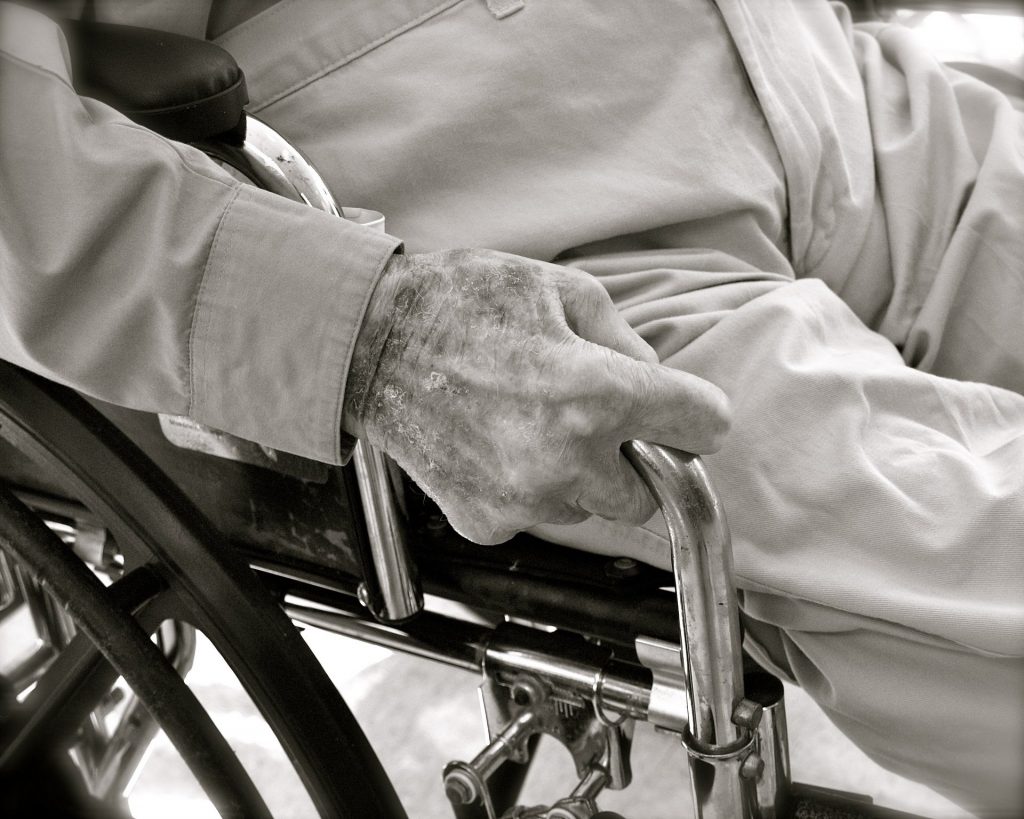The dramatic increase in NHS waiting times for hospital treatment over the past 18 months means patients are suffering excruciating and debilitating pain for much longer than previously and a consequence of this has been a significant increase in the use of opioid drugs for pain relief, according to researchers from the University of Aberdeen.
A study from The University of Aberdeen found a 40% increase in the use of opioid analgesics, such as morphine, to ease the severe pain from osteoarthritis suffered by patients now waiting much longer than in pre-pandemic times for hip and knee replacements.
The study, published in the BMJ Quality & Safety, looked at data collected from 452 NHS patients from the north east of Scotland who were on the waiting list for hip and knee replacement surgery. The number of patients who had been prescribed opioids while waiting for surgery pre-pandemic was compared with those waiting during the pandemic in 2020.
In March 2020 when the pandemic struck hospitals across the UK cancelled elective surgery moving to acute use only, leading to a backlog in surgery.
The increase in use of opioid analgesia, such as morphine or tramadol, was associated with an increase in waiting times; patients in the study waited on average 90 days longer for surgery during the period of the pandemic in 2020 than pre-pandemic.
These opioid drugs are viewed as drugs of last resort, and the researchers note there is growing evidence for their limited benefit and even the long-term detriment to health, especially in older adults. Long-term opioid use pre-surgery has also been associated with “increased risk of complications related to the operation, poorer outcomes, and ongoing opioid dependence.”
Luke Farrow, Clinical Research Fellow at the University of Aberdeen’s Institute of Applied Health Sciences, who led the research, notes that the work is evidence of “an emerging opioid problem associated with the influence of Covid-19 on elective orthopaedic services” and that there is an urgent need to find “better alternative methods for managing severe arthritis pain for those awaiting this type of surgery and work to recover the backlog of associated operative cancellations during Covid-19 to prevent more widespread opioid use.”
This study looked at the time period during the pandemic when hospitals cancelled elective procedures wholesale; although hospitals restarted elective procedures later in 2020, the backlog has not gone away and waiting lists have risen to record levels. This means that the number of patients potentially being prescribed opioid analgesia is substantial.
Earlier in September, NHS England announced the latest waiting list figures: the number of people waiting for hospital treatment in England was 5.61 million, an increase of 1.4 million more patients than when the pandemic struck in March 2020. There have been warnings that the waiting list could reach 10 million this year and 13 million soon after that.
The amount of time people are waiting is also increasing; 1.8 million of the 5.6 million people who were waiting for care in July had already waited at least 18 months – more than double the 860,309 people who were in that situation in March 2020. There were 1,732 people waiting over two years for joint replacement surgery – primarily hip and knee replacements. This is potentially leading to an increase in opioid use and its associated problems.
Dear Reader,
If you like our content please support our campaigning journalism to protect health care for all.
Our goal is to inform people, hold our politicians to account and help to build change through evidence based ideas.
Everyone should have access to comprehensive healthcare, but our NHS needs support. You can help us to continue to counter bad policy, battle neglect of the NHS and correct dangerous mis-infomation.
Supporters of the NHS are crucial in sustaining our health service and with your help we will be able to engage more people in securing its future.
Please donate to help support our campaigning NHS research and journalism.


